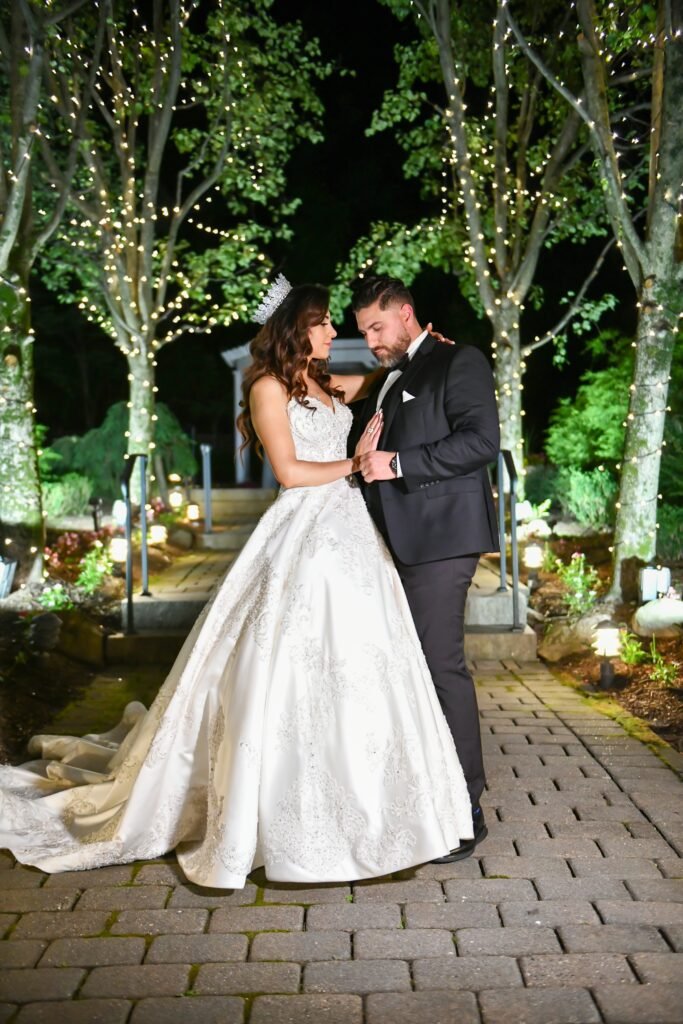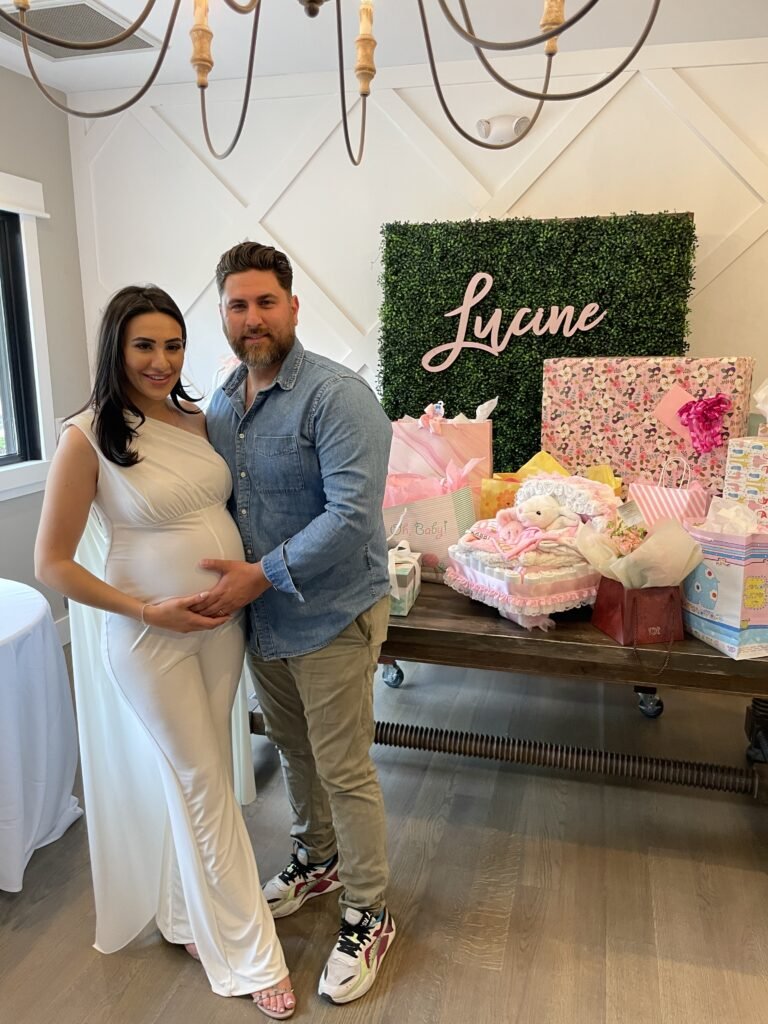For Diana Simonian, signing up for an Armenian dating app was an obvious decision.
“Being a minority living in Los Angeles, you don’t see or hear of too many Iraqis. Armenian for me was a next step,” she told the Weekly. “I always gravitated toward Armenians, because I felt like that’s a second family for me.”
The daughter of Iraqi immigrants, Diana isn’t Armenian, but she grew up surrounded by Armenians in Los Angeles. Her father’s best friend of about 50 years is Armenian. Diana and her sister also spent their summers at Hye Camp, an Armenian summer camp in northern California. Diana used to joke with her friends that her last name was Suleymanian, adding the distinguishing Armenian “ian” to her surname Suleyman.
When it came time to find a husband, Diana knew she wanted to build her life with someone from a similar cultural background. So she made a profile on the dating app Kyank, an Armenian term of endearment that means “life.” She matched with Berj Simonian in January 2021. Berj was born to an Armenian family in Baghdad. They had an immediate connection, but he lived across the country in New York. Their relationship blossomed over daily FaceTime calls and text messages.
Three weeks into their online courtship, Diana went dress shopping with her mom.
“We walked into the store, and I saw this beautiful gown, and I told my mom, this is going to be my engagement dress,” Diana recalled.
Her mom was stunned. “Your engagement dress to who?” she asked.
“That was my moment. I had just known that we were going to be together forever,” Diana told the Weekly.
In March, three months after they matched on Kyank, Berj flew out to Los Angeles to meet Diana for the first time. Diana picked him up from the airport, and after an obligatory trip to In-N-Out Burger, Diana drove Berj straight to her parents’ house.
Berj said meeting Diana’s family felt like coming home. There was Iraqi kubba and tabbouleh on the table, and Diana’s parents spoke Arabic just like his. He described how easy and natural it was to join Diana’s family.
Three months later, Berj and Diana were engaged. Just three months after that—nine months after meeting on Kyank—they were married.

Armenians formed communities in Iraq and across the Middle East after the Armenian Genocide of 1915. Their culture expanded to include different traditions, languages and cuisines. Diana and Berj come from different ethnic backgrounds, but they’re connected through Armenian culture.
Miro Markarian, the founder of Kyank, grew up in Iran, where Armenians have lived for centuries. Markarian says he launched Kyank in 2020 as a way to bring young Armenians together.
Many of Markarian’s closest friends are other Armenians he grew up with in Iran. Markarian lost touch with his childhood friends when they moved to California. When Markarian left Iran and started attending high school in Los Angeles, they reconnected, and they’ve maintained a strong bond ever since.
“We had that strong connection, because of how much we could relate to the way we were brought up and the experiences we went through,” Markarian said. “I’m much more comfortable next to them. I trust them more, because I trust their upbringing.”
Many Armenians have always dated within their culture. But the 2020 war between Armenia and Azerbaijan made this choice an existential one. Dr. Rosie Vartyter Aroush researches LGBT Armenian identity. She says that war, displacement and genocide have always been a part of Armenian identity in the diaspora. But the war in 2020 reminded Armenians in the United States that the potential for a new crisis is always present.
“You found comfort in being surrounded by people who understood your struggle, and unfortunately at that time period, for the most part, those who could understand your struggle were only Armenians,” explained Dr. Aroush.
Many Armenians have faced pressure from their parents to marry other Armenians and start a family. This was characteristic of the generation that survived the Armenian Genocide and was struggling to rebuild and repopulate the global Armenian community. The push to raise Armenian families is also one of the driving forces of discrimination against LGBTQ people by Armenians, Dr. Aroush says. Parents may assume that their LGBTQ children could never get married or have children.
These ideas are associated with an older generation. But Dr. Aroush says that, right after the war, she heard people who had never expressed a desire to have children talk about having children to bring more Armenians into the world.
“It was feelings people felt at the time that I don’t know a year or two later are actually still standing. I think it was emotional responses. I don’t know if they solidified into action,” Dr. Aroush said. “And I think we need more time to see how big of a role that plays.”
The Simonians are expecting their first child. They’re already looking for an Armenian school. They also want to teach their daughter Arabic. Home never means one thing for people who live in a diaspora. But through dating apps, people are finding a home in Armenian culture.




Be the first to comment